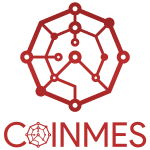Blockchain technology has revolutionized various industries, and one area where it holds immense potential is in creating decentralized marketplaces for intellectual property (IP). In this article, we will explore how blockchain is transforming the way IP is bought, sold, and protected and the benefits it brings to creators, artists, and innovators.
Understanding Intellectual Property
Before diving into the role of blockchain in IP marketplaces, it’s crucial to understand what intellectual property entails. Intellectual property refers to creations of the mind, such as inventions, literary and artistic works, designs, and symbols used in commerce. It is categorized into different types, including copyright, patents, trademarks, and trade secrets. Intellectual property rights provide exclusive rights to creators and inventors, enabling them to protect and monetize their creations.
Challenges in Traditional IP Marketplaces
Traditional IP marketplaces have long been plagued by centralization, intermediaries, lack of transparency, and high costs. These centralized platforms often act as middlemen, controlling access to IP assets and charging significant fees for their services. This system creates barriers to entry and limits the potential reach of creators. Additionally, the lack of transparency and trust in these platforms raises concerns about ownership rights and fair compensation.
How Blockchain Technology Works
Blockchain, at its core, is a decentralized and immutable ledger that records transactions and information across multiple computers. It operates on the principles of transparency, security, and consensus. Each transaction, or block, is cryptographically linked to the previous one, forming a chain of blocks, hence its name. This distributed ledger ensures that all participants have access to the same information and that any changes to the data require consensus from the network.
Smart contracts, built on this technology, are self-executing agreements with predefined rules and conditions. They eliminate the need for intermediaries and enable direct peer-to-peer interactions. Decentralized applications (dApps) leverage smart contracts to create platforms and marketplaces that run autonomously, providing a transparent and efficient environment for IP transactions.
Benefits of Blockchain in IP Marketplaces

- Security and Immutability: It ensures the security and immutability of records by utilizing cryptography and decentralization. Once a transaction or record is added to the blockchain, it becomes a permanent part of the chain and cannot be altered or tampered with. This feature provides a high level of trust and integrity in IP ownership and transaction history.
- Transparency: Every transaction recorded on the blockchain is visible to all participants in the network. This transparency eliminates the need for intermediaries and creates a more open and fair marketplace. Creators have full visibility into the usage and distribution of their IP assets, ensuring that their rights are protected and respected.
- Direct Peer-to-Peer Interaction: It enables direct peer-to-peer interaction between creators, buyers, licensors, and investors. By bypassing traditional intermediaries, creators can establish direct connections and negotiate deals without the involvement of costly middlemen. This direct interaction empowers creators to have more control over their IP assets and negotiate fair terms.
- Cost Reduction: Blockchain-based IP marketplaces significantly reduce costs by eliminating intermediaries and streamlining the transaction process. Creators can directly connect with potential buyers or investors, eliminating the need for expensive brokers or agents. This cost reduction allows creators to retain a larger portion of their earnings, making IP monetization more lucrative.
- Efficiency and Speed: It streamlines the IP transaction process, making it more efficient and faster. The use of smart contracts eliminates the need for manual paperwork and lengthy negotiation processes. Smart contracts automatically execute predefined terms and conditions, enabling faster and frictionless transactions.
Use Cases of Blockchain in IP Marketplaces
- Digital Rights Management (DRM):
- Blockchain-based DRM systems enable secure and traceable distribution of digital content.
- Smart contracts automatically enforce licensing terms and grant access to authorized users only.
- Ensures fair compensation for creators by facilitating proper royalty payments.
- Royalty Tracking and Payments:
- It records IP ownership and licensing agreements, improving transparency in royalty distribution.
- Smart contracts automate the distribution of payments based on predefined terms.
- Reduces administrative overhead and ensures timely and accurate compensation for creators.
- Tokenization of IP Assets:
- Representing IP assets as tokens on a blockchain.
- Enables easy division of ownership rights and fractional ownership for investors.
- Opens up avenues for crowdfunding and democratizes access to valuable IP assets.
- Creation of secondary markets where IP assets can be traded, providing liquidity and unlocking additional value for creators.
Challenges and Limitations of Blockchain in IP Marketplaces
- Scalability and Speed:
- Existing blockchain networks may struggle to handle the high volume of transactions required for large-scale IP marketplaces.
- Ongoing research and development efforts are focused on improving the scalability and efficiency of blockchain networks to meet the demands of IP transactions.
- Legal and Regulatory Considerations:
- Existing legal frameworks surrounding intellectual property may need to evolve to accommodate blockchain-based systems.
- Governments and regulatory bodies must ensure that the rights of creators and innovators are protected in the decentralized and transparent nature of blockchain while still encouraging innovation and growth.
- Interoperability:
- The adoption of this technology in IP marketplaces requires interoperability between different blockchain networks and platforms.
- Standardization efforts are underway to establish common protocols and frameworks that enable seamless integration and interaction between various blockchain-based marketplaces.
Emerging Blockchain-based IP Marketplaces
Despite the challenges, there are already exciting developments in the field of blockchain-based IP marketplaces. Platforms such as Ethereum-based SuperRare and Rarible have gained traction as decentralized marketplaces for digital art and collectibles. These platforms leverage this technology to ensure provenance, authenticity, and ownership transparency for digital assets.
Innovations and advancements in blockchain technology continue to drive the evolution of IP marketplaces. Projects exploring the intersection of this technology, AI, and machine learning are developing new ways to detect and enforce intellectual property rights. These innovations are empowering creators, artists, and innovators by providing them with greater control over their work and facilitating fair compensation.
Cross-border Considerations and Global Accessibility
- Harmonization of regulations: The global nature of blockchain-based IP marketplaces requires international collaboration and harmonization of regulations. Consistency in legal frameworks and standards would facilitate cross-border transactions and ensure a level playing field for creators and users worldwide.
- Overcoming language and cultural barriers: Blockchain’s potential to connect creators from different regions necessitates solutions for language and cultural barriers. User-friendly interfaces and multilingual support can enhance accessibility and inclusivity in global IP marketplaces.
Blockchain Interactions with Emerging Technologies
- Artificial Intelligence (AI) integration: Combining blockchain with AI technologies can enable automated IP monitoring, detection of infringements, and licensing compliance. AI algorithms can analyze blockchain data to identify unauthorized use of IP assets and support enforcement mechanisms.
- Internet of Things (IoT) integration: Blockchain can secure transactions and data exchange between IoT devices, offering new opportunities for IP marketplaces. Smart devices can interact with the blockchain to provide proof of usage, ownership, and traceability for IP assets connected to the IoT ecosystem.
Future Outlook and Potential Impact
The advent of blockchain technology in IP marketplaces has the potential to disrupt traditional models and empower creators on a global scale. By removing intermediaries, reducing costs, and increasing transparency, blockchain-based marketplaces democratize access to intellectual property. Creators can reach a wider audience, retain more control over their creations, and receive fair compensation for their work.
Moreover, blockchain-based IP marketplaces have the potential to bridge the gap between developed and developing countries, making intellectual property assets more accessible and facilitating global collaboration. This technology has the power to unlock the untapped potential of creators in regions with limited resources and infrastructure, fostering a more inclusive and diverse creative ecosystem.
In conclusion, blockchain technology is revolutionizing the way intellectual property is bought, sold, and protected. By offering security, transparency, and cost-efficiency, blockchain-based marketplaces provide a promising alternative to the traditional centralized systems. While challenges exist, ongoing advancements in the field and collaborative efforts between industry stakeholders and regulatory bodies can pave the way for a future where creators have greater autonomy and the intellectual property landscape becomes more vibrant and accessible.
FAQs
1. How does blockchain ensure the security of intellectual property?
Blockchain technology ensures the security of intellectual property by providing a decentralized and immutable ledger. Once a transaction or record is added to the blockchain, it cannot be altered or tampered with, ensuring the integrity of IP ownership and transaction history.
2. Can blockchain-based IP marketplaces prevent copyright infringement?
Blockchain-based IP marketplaces can contribute to preventing copyright infringement by providing transparent ownership records and traceability of digital assets. Creators can enforce licensing terms through smart contracts, ensuring that their work is used in accordance with their rights.
3. Are there any legal considerations when using blockchain for intellectual property?
Yes, there are legal considerations when using blockchain for intellectual property. Existing legal frameworks may need to evolve to accommodate the unique characteristics of blockchain-based systems. Governments and regulatory bodies are actively working to ensure that IP rights are protected in this new landscape.
4. How does tokenization benefit creators in IP marketplaces?
Tokenization allows creators to represent their IP assets as tokens on a blockchain. This enables fractional ownership, crowdfunding opportunities, and the creation of secondary markets for IP assets. Tokenization provides creators with new avenues for monetization and increased liquidity.
5. What role does blockchain play in empowering artists and innovators?
Blockchain empowers artists and innovators by providing them with direct access to global marketplaces, reducing reliance on intermediaries, and ensuring fair compensation. It gives creators more control over their work, promotes transparency, and fosters a more inclusive and diverse creative ecosystem.
I have over 10 years of experience in the field of cryptocurrency and have written numerous books on the subject. I am a highly sought-after speaker and consultant on all things crypto, and my work has been featured in major media outlets such as The Wall Street Journal, CNBC, and Forbes. I am also a regular contributor to CoinDesk, one of the leading publications in the space. In addition to my writing and consulting work, I am also an advisor for several blockchain startups.

